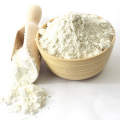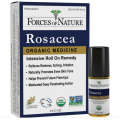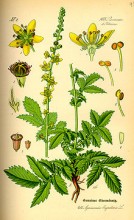 Loading... Please wait...
Loading... Please wait...- Home
- About Us
- Shipping, Returns & FAQ's
- Contact Us
-
For Your Information
- Canadian Customers Have a Choice if Shipping Via UPS
- Aura Cacia Homemade Aromatherapy Recipes
- Bella Nella Altered Art & Paper Crafts Blog
- Forms of Herbal Preparations
- Laundry Tips To Conserve Energy Blog from The Laundress
- The Story of Frontier Natural Products Co-Op
- Sovereign Silver Hydrosol and Aloe Protocol Stops Downward Spiral of Gut Dysbiosis
- Disclaimers
- Recommended Links
- RSS/Recent News
- The Story of Typhoon Housewares
- Reviews/Testimonials
- Raw Ingredients for Mfg
Agrimony Herb Bulk
Product Description
Finding safe plants to use when making children’s herbal remedies can be difficult but Agrimony herb is one that can be safe to use for a wide variety of common minor medical complaints including:
- Diarrhea
- Cramping associated with gastrointestinal flu
- Colic
- Flatulence
- As an anti-parasitic
- Fevers
- Spring tonics to help cleanse the digestive system
- Bladder infections
- Bed wetting and leakage of urine
The entire plant is very aromatic and has soft hairs growing on it in the spring. Because of its sweet aroma, many people have appreciated using it in drinks.
Agrimony, also known as cocklebur and liverwort, was well known to the ancient Greeks. In fact, the herb gets its genus name from the Greek word agremone, which refers to plants used to address cataracts of the eye. Its species name is in honor of Mithradates Eupator, King of Pontus, who developed a “universal antidote” to protect himself from all poisons.
Agrimony is used for sore throat, upset stomach, mild diarrhea, irritable bowel syndrome (IBS), urinary tract function, diabetes, gallbladder disorders, fluid retention, cancer, tuberculosis, bleeding, corns, and warts; and as a gargle, heart tonic, sedative, and antihistamine.
Agrimony is applied directly to the skin as a mild drying agent (astringent) and for mild skin redness and swelling (inflammation). Some chemicals taken from agrimony are used to fight viruses.
External Uses
Agrimony herb contains many antiseptic, astringent, anti-viral and antibacterial properties that provide a safe alternative for many conditions including:
- Cleaning solution for wounds
- Mouthwash for gingivitis, gum disease and mouth injuries
- Bleeding and seeping wounds
- Boils
- As a poultice for burns
- Skin rashes
- Hives, from allergic reactions and bug bites
- Eczema to help control infection
Agrimony contains several active compounds, including ellagi-tannins, flavonoids, phytosterols and polysaccharides. Due to its bitter and astringent qualities, the herb is usually prepared as tea or applied topically to counter acne, rashes and other skin conditions. Blend with orange peel or peppermint in teas to improve flavor.
Certified Organic cut & sifted agrimony (SKU#W209125-30) is available listed as 'Other' in the drop-down menu above.
Botanical Name: Agrimonia eupatoria
aka: Agrimone, Agrimonia, Aigremoine, Aigremoine Eupatoire, Church Steeples, Churchsteeples, Cockeburr, Cocklebur, Common Agrimony, Da Hua Long Ya Cao, Eupatoire-des-Anciens, Fragrant Agrimony, Francormier, Herba Agrimoniae, Herbe-de-Saint-Guillaume, Herbe de Sainte Madeleine, Philanthropos, Soubeirette, Sticklewort, Thé des Bois, Thé du Nord, Toute-Bonne, Xian He Cao.
Origin:
Notes: The aerial parts of the herb are used, which includes the flowering tips and leaves. Kosher Certified. Non-irradiated. Non-GMO.
Specifications are subject to change without notice.
* FDA disclaimer
References
webmd
herbal remedies info
You Recently Viewed...
Currency Converter
Choose a currency below to display product prices in the selected currency.



























